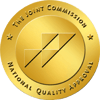Friendship & Health
Friendship is an essential element to human health, mentally, emotionally and physically. WebMD states that benefits of having quality friends can include increasing a sense of belonging and purpose, boosting happiness, reducing stress, improving self-confidence and self-worth, help coping with life transitions and traumas, encouragement for healthy behaviors, good times, and a longer lifespan. Friendships can also reduce risk of significant health problems such as depression, high blood pressure, and unhealthy body mass index (mayoclinic).
Additionally, having a healthy support system can help humans stay in good habits. Being in recovery and maintaining sobriety can have difficulties, and having a support system that includes individuals in recovery is helpful and important in staying on your chosen path. Having quality relationships with sober individuals decreases the risk of relapse, as well as provides support, increases wellness, joy, and quality of life.
Creating and Maintaining Quality Friendships
How do you know if your friendship is high quality? The relationship includes support, trust, honesty, good listening, non-judgement, no-gossip, respect – including respect of boundaries, and giving and seeking forgiveness when appropriate (psychology today).
While going through a period of self-growth, it is common to lose some friends and find new ones. It is okay to feel grief and sadness for the loss of friendships. When we begin to make better choices and elevate our lifestyle, we start to attract, and be drawn to, others who share similar values, beliefs, and habits. Like Grammy Award Winner Drake sings, "I've been losin' friends and findin' peace; honestly that sounds like a fair trade to me." These new relationships support individuals in maintaining healthy habits and positive decision making.
To make new friends, remember “your vibe attracts your tribe.” Reach out to people who made you feel supported and respected from previous events, classes, or work environments. These can also be friends or family members. Other options include attending community events, volunteering, extending and accepting invitations, investing time in a hobby you enjoy, or joining a spiritual community. Practice skills of being a good friend such as being kind, helpful, a good listener, and trustworthy. (mayoclinic).





